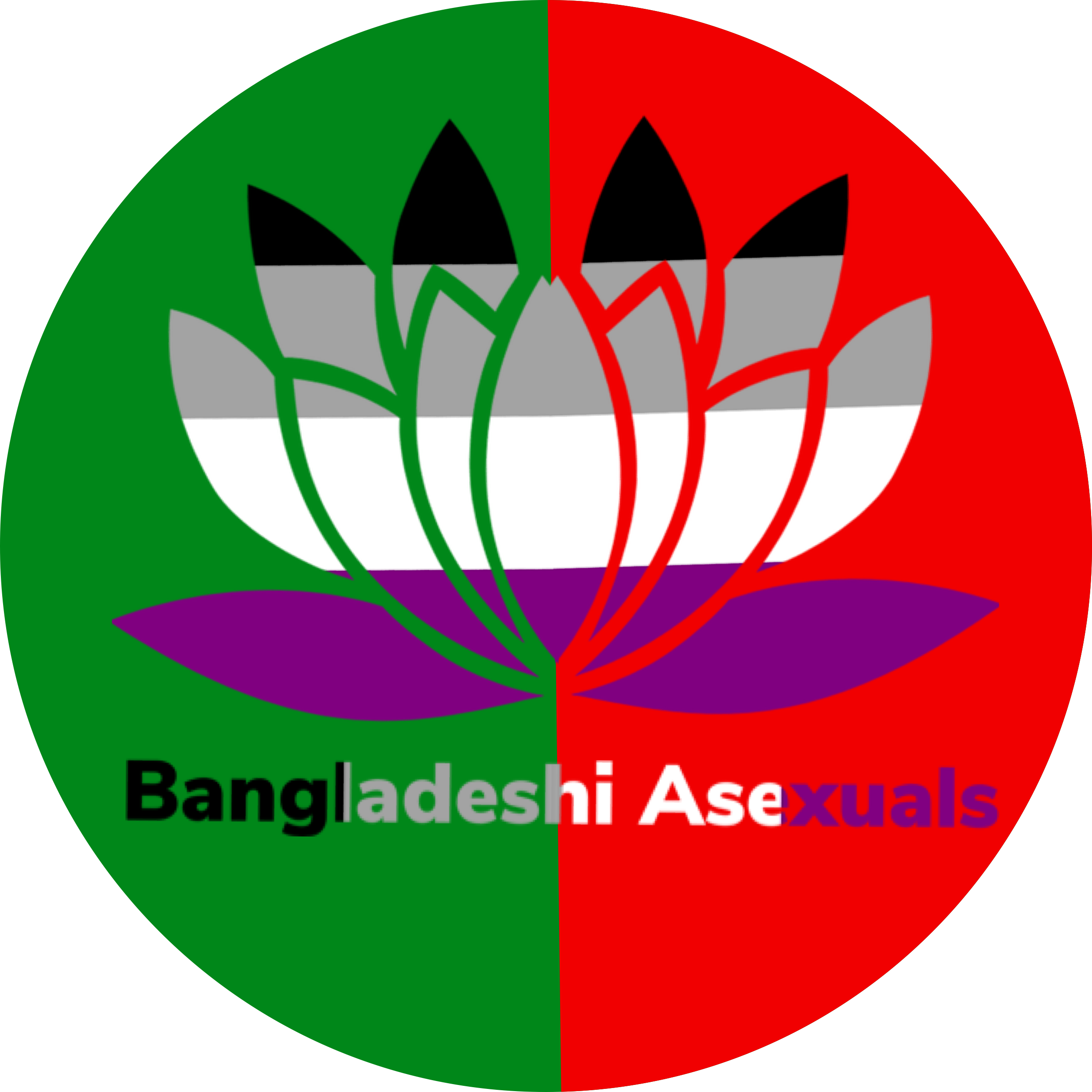Our Members
Bangladeshi Asexual Association
About the organisation
Bangladeshi Asexual Association started in 2020 as a self/non-funded collective of, for, and by ace (asexual) and a-spec (asexual spectrum) people from/in Bangladesh. Over the years, we have grown into a movement that is a volunteer-led initiative, with both online and offline presence across Bangladesh, and beyond.
Mission & Vision
1. Attempt to address ‘A’ phobia, asexual hate crime, stigmatization, hostility, disgust, or other negative attitudes and uphold the human rights of the Bangladeshi asexual queer community.
2. Explore the reality of being an asexual citizen in Bangladesh and the wider LGBTQIA+ global landscape.
3. Giving visibility and recognition of the asexual activism in the larger LGBTQ+ community.
4. Nurturing the young and emerging asexual activists in contemporary queer leadership.
5. Making sure equal opportunities for every gender.
SRHR publications/research
The biggest challenge is – the A-spec movements constitute a marginalized movement within the queer community all around the world so far. Asexual Hate Crime is the most overlooked issue in the queer movement. The high-profile movements against LGBTQ+ phobias, like IDAHOBIT, have rarely or never addressed asexuality or ace phobia. And through the celebration of this day, there is a global awareness campaign, where every year the struggle of asexual people is not only brought into the discussion, but also many claim that A Phobia is not valid at all. It proves how much of the queer movement is centered on an allosexual perspective.
People with A-Spec face many challenges including invisibility, stigma, discrimination, and violence. Asexual teenagers/young/adults often come out for fear of sex shaming. Asexual people commonly experience being threatened by intimate partner violence and social bullying. Mostly women are affected by corrective rape and forced marriage. Many women in Bangladesh do not have economic independence, so they are financially dependent on their fathers or husbands. There is a huge pressure to arrange marriages from low-income families. Many asexual women run away from home to escape the pressure, but they have to go back to their father’s house in the end because there is no shelter/safe home for them. I found lots of girls, women seek shelter homes for stay to save themself from LBTIAQ survivors of violence. I temporarily managed to live in the residency at Epiphania Visuals
In Bangladesh & some other Muslim countries forced marriage & marital rape are still not illegal, and in Muslim Sharia law, women cannot appeal for divorce except in 5 cases, and marital rape is not among those 5. As a result, asexual women have to suffer a terrible married life.
Along with all these sufferings ‘conversion’ therapy is completely legal, where asexual people are constantly treated as sexual dysfunction patients. Acts of physical, psychological, and sexual abuse, forced medication, confinement, verbal abuse, and humiliation are a part of everyday life. Asexual persons endure severe pain and long-lasting psychological and physical damage because of so-called ‘conversion therapies. Gradually we/they are widely subjected to normalizing, non-consensual, harmful therapy and other medical interventions.
( As a victim of ‘conversion’ therapy, I found time to time doctors have tried to treat my orientation as Gamophobia /Frigid/ Psychosexual Disorder/OCD, etc. At that time there was no mental health support. I had to take online therapy from India with the help of an Indian activist’s friend. )
While asexual activism has been growing around the world, asexual issues and communities remain starkly underfunded.

